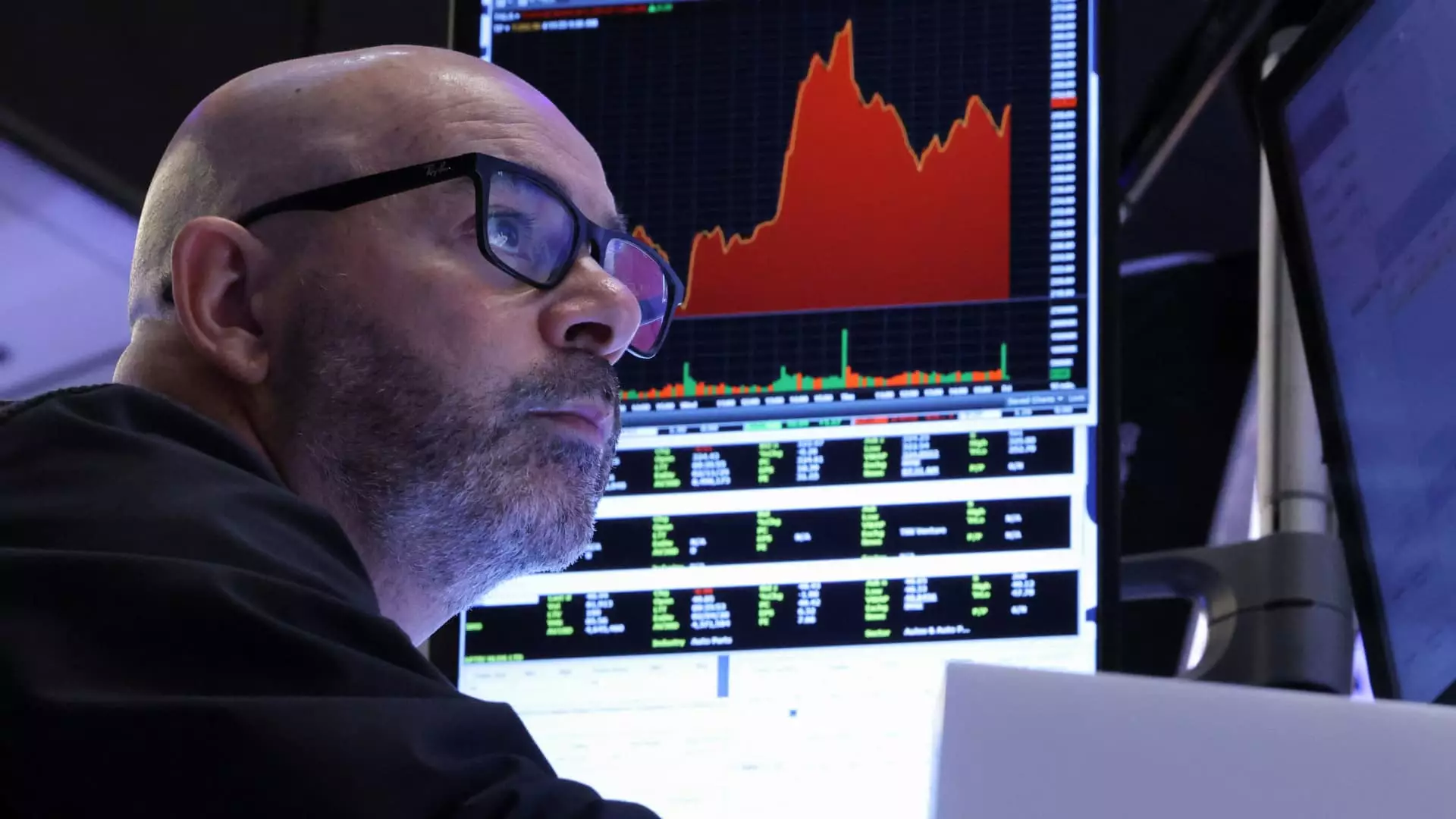The stock market has always been synonymous with risks and rewards, but ever since the introduction of zero-day-to-expiration (0DTE) options, a troubling pattern has emerged that deserves scrutiny. These financial instruments allow investors to dive into quick trades that expire within the same trading day. The fact that 0DTE options accounted for about 7% of U.S. option market activity not long ago emphasizes their growing importance—and, more worryingly, their potential to incite market chaos. As trading volume surged to 8.5 million in April alone, one has to wonder: are they enhancing investor opportunities or lighting the fuse of volatility?
A Double-Edged Sword
Advocates of 0DTE options tout them as powerful hedging tools for capturing a moment’s volatility, but is the potential reward worth the glaring risks? Prices can swing violently in either direction, and these fluctuations are further exacerbated by the high volumes of short-lived contracts being facilitated by dealers and market makers. Jeff Kilburg, CEO of KKM Financial, candidly describes the current environment as akin to “gasoline on a fire.” This imagery captures the rampant volatility that seems almost impossible to navigate. The market dynamics have shifted dramatically compared to just a decade or two ago, and the potential for abrupt market shifts has grown substantially.
Email Alerts and Day Trading Madness
As the market continues to flutter like a leaf in the wind, the nature of trading has undergone a transformation thanks to the rise of retail trading platforms like Robinhood. With user-friendly interfaces and notifications flooding inboxes, the average investor is lured into the high-stakes game of options trading, often without a full grasp of the mechanics involved. This democratization of trading presents a double-edged sword—while it enables broader participation, it also raises concerns about the competence of retail investors who may lack the experience needed to navigate such turbulent waters. As 0DTE options become increasingly accessible, are we inadvertently fostering a culture of recklessness among traders who lack fundamental investment education?
Extreme Volatility: A New Normal
The S&P 500’s intraday volatility—having nearly doubled in one week and reaching levels not seen since the 2008 financial crisis—is more than a mere statistic; it’s a flashing red light indicating that these zero-day options are driving a new modus operandi for trading. Market participants have quickly learned to adapt, but are they really equipped to handle this new normal? The striking fact that the Dow Jones Industrial Average recently fell over 1,500 points in consecutive days marks an unprecedented occurrence, a clear sign that investors are walking a tightrope. For those with a center-right perspective, the prevailing sentiment should be cautious. While innovation in financial products can yield benefits, what’s clear is that accountability for understanding these instruments is still lacking.
Hedging or Gambling?
What truly distinguishes responsible investors from mere speculators? The lines increasingly blur as many investors turn towards short-lived options in pursuit of quick profits, often ignoring the fundamental principle of investment: time in the market typically beats timing the market. Instead, in the race for short-term gains, there’s a growing sentiment that many are gambling rather than investing—a dangerous trend that could erode market fundamentals in the long run.
The tools that were once the domain of seasoned institutions are now at the fingertips of anyone with a smartphone. But be wary: a lack of understanding of these tools may lead one to make hasty decisions. Each favorable market turn could just as easily lead to a devastating miscalculation, weighing heavily on the totality of an investor’s portfolio.
As we navigate the fast-evolving landscape of finance marked by the meteoric rise of zero-day options, we must call into question our own roles as market participants. Are we leveraging these tools to our advantage, or are we allowing ourselves to be swept up in the turbulence that they create? The answer may define the future of investing—one that demands not just knowledge of the tools we use but also prudence in applying them in an increasingly fragile market environment.

